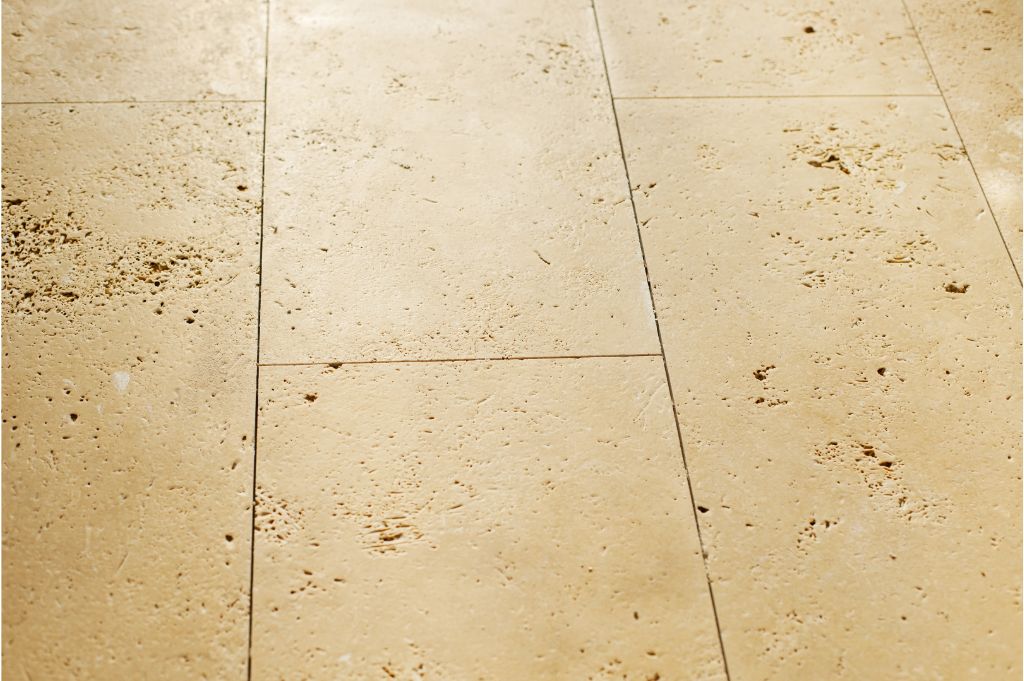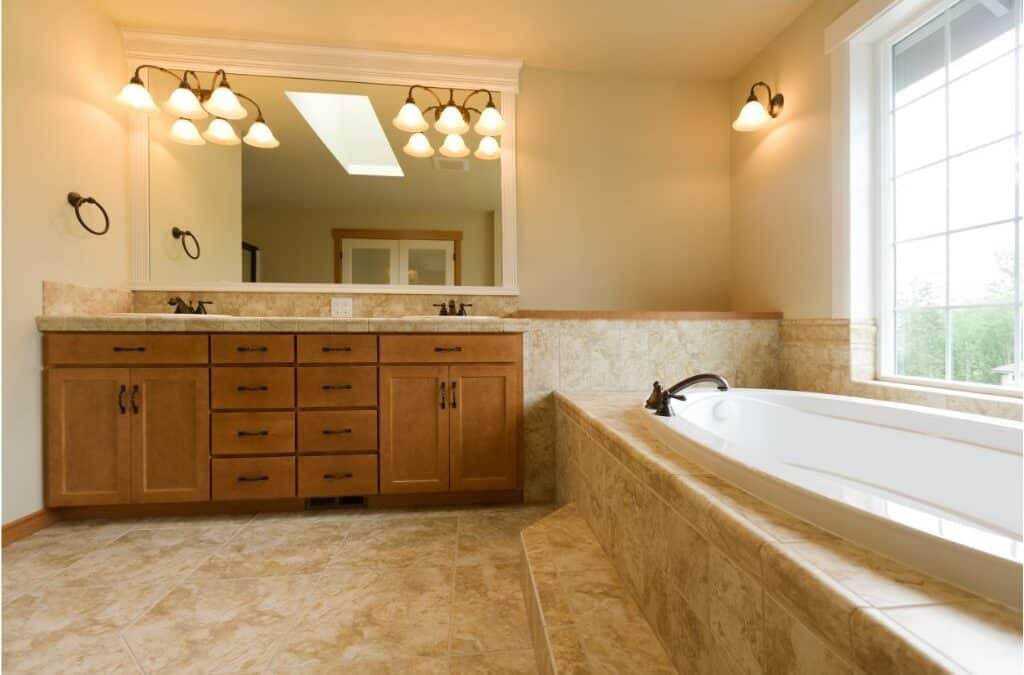Travertine tiles are a versatile natural stone flooring option that comes with a myriad of advantages. In this blog, we’ll delve into the various pros and cons of using travertine tiles, helping you make an informed decision about whether they’re the right choice for your space.
Pros of Travertine Flooring
1. Appeal and Aesthetic
Travertine tile boasts appealing features, resembling natural soft stone akin to limestone. Despite its softness, its density categorizes it as a type of marble that has stood the test of time, making it a popular choice for flooring, walls, and pavers in homes across different regions.
2. Accessibility
One significant advantage of travertine tiles is their accessibility. These tiles are almost always readily available, ensuring that if replacements are ever needed, finding matching tiles won’t be a hassle. Being a natural material, travertine can be cut into identical patterns and shapes as the original tiles.
3. Ease of Installation
Whether opting for professional installation or a DIY approach, travertine tiles are renowned for their ease of installation. Compared to other natural materials, travertine is among the easiest to cut and fit into various spaces, even accommodating oddly shaped rooms, entryways, and stairs.
4. Consistency in Appearance
Travertine’s cross-cutting technique facilitates a more consistent texture and color match. This method allows for patterns to be easily replicated, resulting in flooring or walls that offer a seamless flow throughout the room.
5. Environmental Sustainability
A significant benefit of travertine tiles is their environmental sustainability. Carved from quarries and cross-cut into blocks, these natural stone tiles are becoming increasingly popular as eco-friendly alternatives. Sealed travertine tiles do not absorb dust or chemicals, contributing to a healthier indoor environment.
6. Variety of Colors
Travertine tiles come in a wide array of colors, from ivory and beige to walnut and beyond. Whether aiming for a rustic or polished look, there’s a color and finish to suit every preference, adding versatility to any space.
7. Low Maintenance
Maintaining travertine tiles is a breeze, thanks to their durability and long-lasting qualities. Unlike some other materials, these tiles don’t require expensive or abrasive cleaning solutions, making them a cost-effective and user-friendly option for homeowners.

Travertine Tiles – Nadine Floor Company
Cons of Travertine Flooring
While travertine offers numerous benefits, it’s essential to consider potential drawbacks before making a decision.
1. Susceptibility to Scratching
Travertine flooring is prone to scratching, particularly from abrasive materials. It’s crucial to handle furniture and other objects with care to prevent surface damage.
2. Sensitivity to Acids
Travertine is highly reactive to acidic substances, making it essential to avoid using acidic cleaners such as vinegar. Acidic spills can lead to permanent stains on the surface of the tiles.
3. Vulnerability to Chipping
Despite its sturdiness, travertine can chip or crack under heavy impact. Careful handling and maintenance are necessary to preserve the integrity of the tiles.
4. Higher Cost
Compared to some other flooring options, travertine can be more expensive, particularly when factoring in the cost of installation materials such as multipurpose thin-set adhesive.
5. Porosity
Travertine is porous by nature, making its surface susceptible to wear and tear over time. Regular sealing is necessary to fill any tiny holes and maintain the tiles’ durability.
Conclusion: Travertine Tiles Pros and Cons

Travertine Tiles – Nadine Floor Company
In conclusion, travertine tiles offer a blend of aesthetic appeal, durability, and environmental sustainability. While they come with certain drawbacks, their versatility and timeless elegance make them a popular choice for various applications. If you’re considering travertine flooring for your home or office, weigh the pros and cons carefully to make an informed decision.
FAQs (Frequently Asked Questions)
1. Are travertine tiles suitable for outdoor use?
- Yes, travertine tiles are commonly used for outdoor areas such as patios, driveways, and pool surrounds due to their durability and resistance to weathering.
2. How often should travertine tiles be sealed?
- It’s recommended to seal travertine tiles annually to maintain their integrity and prevent moisture absorption.
3. Can acidic spills be removed from travertine tiles?
- Acidic spills should be cleaned immediately to prevent staining. However, it’s essential to avoid acidic cleaners, as they can cause further damage to the tiles.
4. What is the average lifespan of travertine flooring?
- With proper maintenance, travertine flooring can last for several decades, making it a long-term investment for homeowners.
5. Can travertine tiles be installed over existing flooring?
- In some cases, travertine tiles can be installed over existing flooring, depending on the condition and type of the subfloor. However, it’s advisable to consult with a professional installer to assess the feasibility of this option.
For expert advice on travertine flooring installation and maintenance, contact Nadine Floor Company at (469) 666-4530 today! Let our experienced team help you transform your space in Plano,TX with quality flooring solutions.

